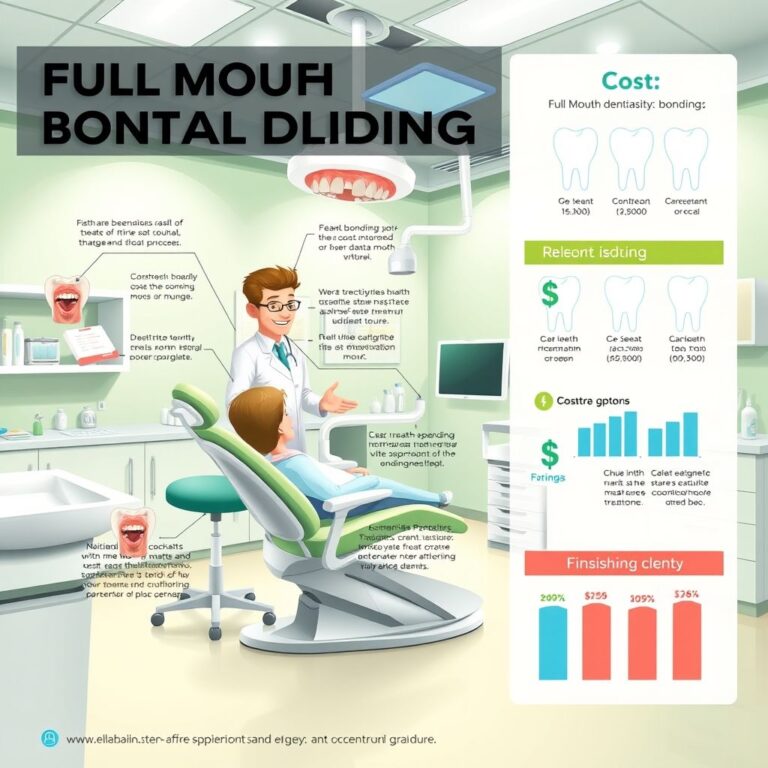Composite Bonding Cost in Dublin
Composite bonding has become an increasingly popular dental procedure, especially in Dublin, where both locals and visitors seek affordable and high-quality cosmetic dental treatments. This comprehensive guide delves into the intricacies of composite bonding cost in dublin, detailing its benefits, and what patients in Dublin can expect. Whether you’re considering enhancing your smile or simply curious about dental procedures, this article provides a thorough understanding of composite bonding costs in Dublin.

Understanding Composite Bonding
What is Composite Bonding?
Composite bonding is a cosmetic dental procedure used to improve the appearance of teeth. It involves applying a tooth-colored resin material to the teeth, which is then shaped and hardened with a special light. This procedure can address various dental issues, including chipped, cracked, discolored, or decayed teeth.
Benefits of Composite Bonding
- Aesthetic Improvement: Composite bonding enhances the appearance of teeth, providing a natural look.
- Cost-Effective: Compared to other dental procedures, composite bonding is relatively affordable.
- Minimally Invasive: The procedure requires minimal tooth preparation, preserving the natural tooth structure.
- Quick and Painless: Typically completed in one visit, composite bonding is a convenient option for patients.
Composite Bonding Costs in Dublin
Factors Influencing the Cost
Several factors influence the cost of composite bonding in Dublin:
- Dentist’s Experience: Experienced dentists may charge more due to their expertise and reputation.
- Location of the Clinic: Dental clinics in prime locations or affluent areas may have higher costs.
- Extent of the Procedure: The complexity and number of teeth being treated impact the overall cost.
- Materials Used: Higher quality composite materials can increase the price.
Average Cost of Composite Bonding in Dublin
The cost of composite bonding in Dublin can vary widely. On average, patients can expect to pay between €150 and €400 per tooth. Some clinics may offer discounts for multiple teeth treatments, bringing down the overall cost.
Cost Comparison
| Clinic Type | Average Cost per Tooth (EUR) |
|---|---|
| High-End Clinics | 300 – 400 |
| Mid-Range Clinics | 200 – 300 |
| Budget Clinics | 150 – 200 |
Finding the Right Dental Clinic
Research and Reviews
When selecting a dental clinic for composite bonding in Dublin, it’s crucial to conduct thorough research. Look for reviews and testimonials from previous patients to gauge the quality of service.
Consultation and Quotes
Schedule consultations with multiple clinics to get a feel for their approach and to receive quotes. This will help you compare costs and services to make an informed decision.
The Composite Bonding Procedure
Step-by-Step Process
- Consultation: Initial discussion with the dentist to understand the patient’s needs and expectations.
- Preparation: Minimal preparation of the tooth surface.
- Application: Application of the composite resin in layers.
- Shaping and Hardening: Shaping the resin to match the natural tooth and hardening it with a curing light.
- Polishing: Polishing the bonded tooth for a smooth finish.
Duration of the Procedure
The composite bonding procedure typically takes between 30 minutes to an hour per tooth, depending on the complexity of the case.
Aftercare and Maintenance
Immediate Aftercare
- Avoid eating or drinking anything that can stain the teeth for at least 48 hours.
- Follow any specific instructions given by the dentist.
Long-Term Maintenance
- Maintain good oral hygiene by brushing and flossing regularly.
- Avoid biting on hard objects to prevent chipping.
- Schedule regular dental check-ups.
Advantages and Disadvantages of Composite Bonding
Advantages
- Quick Results: Immediate improvement in the appearance of teeth.
- Cost-Effective: More affordable than veneers or crowns.
- Non-Invasive: Less removal of tooth enamel compared to other procedures.
Disadvantages
- Durability: Composite bonding is less durable than veneers or crowns and may need replacement or repair over time.
- Staining: The resin material can stain over time, especially if exposed to coffee, tea, or tobacco.
Frequently Asked Questions (FAQs)
How long does composite bonding last?
Composite bonding typically lasts between 5 to 7 years, depending on the individual’s oral hygiene and lifestyle habits.
Is the composite bonding procedure painful?
No, composite bonding is generally painless and does not require anesthesia, except in cases where bonding is used to fill a cavity.
Can composite bonding be removed?
Yes, composite bonding can be removed or replaced if necessary. A dentist can remove the resin material without damaging the natural tooth structure.
How do I care for my teeth after composite bonding?
Maintain regular oral hygiene practices, avoid foods and drinks that can stain, and visit your dentist regularly for check-ups.
What alternatives to composite bonding are available?
Alternatives include veneers, crowns, and teeth whitening, each with its own set of benefits and costs.
Conclusion
Composite bonding is a versatile and cost-effective solution for enhancing your smile. In Dublin, the cost of composite bonding varies depending on several factors, but it generally remains an affordable option compared to other cosmetic dental procedures. By choosing a reputable dental clinic and following proper aftercare, patients can enjoy the benefits of composite bonding for many years. If you’re considering composite bonding, consult with a local dentist to discuss your options and get started on your journey to a brighter smile.
Additional Resources
For more information on composite bonding and other dental procedures, consider visiting the following websites:
Reviewing and proofreading your article ensures accuracy and clarity. Make sure to address any potential spelling or grammatical errors before publishing.


